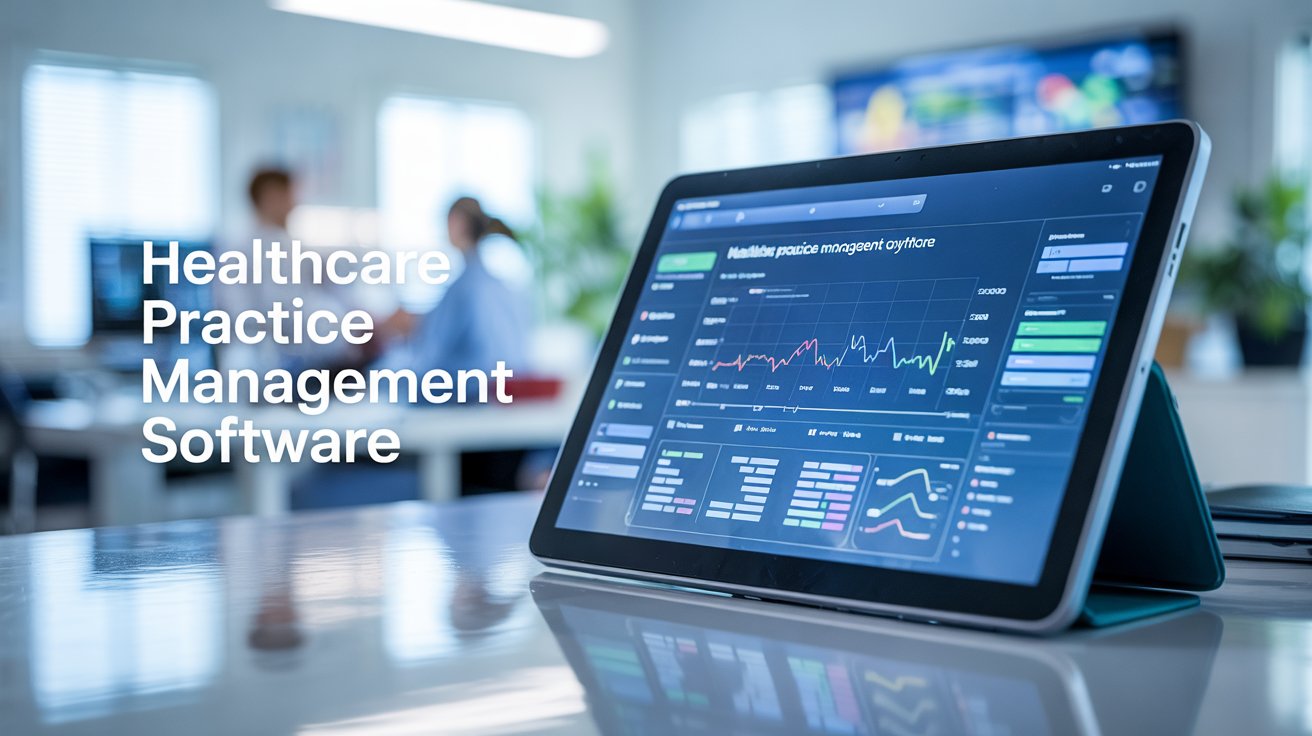Healthcare Practice Management Software: Cost Breakdown & Key Factors

Strong 8k brings an ultra-HD IPTV experience to your living room and your pocket.
In today’s fast-paced healthcare landscape, efficient and streamlined administrative operations are essential for delivering quality patient care. Healthcare Practice Management Software (PMS) plays a pivotal role in simplifying and automating tasks such as appointment scheduling, billing, patient registration, and more. However, before investing in such a system, healthcare providers must understand the various cost components involved and the key factors that influence pricing.
Partnering with providers of professional software development services can ensure your healthcare practice receives a tailored solution that meets regulatory standards, integrates with existing systems, and scales with your growth. These experts can help you navigate the development process efficiently while staying within budget and achieving long-term value.
This guide provides a detailed breakdown of the costs associated with Healthcare Practice Management Software, along with the critical elements to consider when evaluating your options.
What is Healthcare Practice Management Software?
Healthcare Practice Management Software is a suite of digital tools that help medical practices manage their day-to-day operations. It acts as the administrative backbone of clinics, hospitals, and private practices, ensuring smooth workflows from patient intake to payment processing.
Core Functions of PMS:
Appointment Scheduling & Calendar Management
Medical Billing & Coding
Patient Data Management
Insurance Verification
Electronic Claims Submission
Reporting & Analytics
Whether integrated with Electronic Health Records (EHR) systems or used independently, PMS platforms are crucial for improving efficiency, reducing errors, and enhancing patient satisfaction.
Cost Breakdown of Practice Management Software
When assessing the cost of Healthcare Practice Management Software, it's important to distinguish between initial and ongoing expenses. Here’s a breakdown of common pricing components:
1. Software Licensing & Subscription Fees
There are two primary pricing models in the PMS space:
Subscription-Based (SaaS): Most cloud-based PMS solutions follow a monthly or annual subscription model. These costs typically range from $150 to $800 per provider per month, depending on the feature set and vendor reputation.
One-Time Licensing: On-premise systems often require a one-time payment, which may range between $5,000 to $50,000 based on the scale of deployment.
2. Implementation & Setup Costs
Implementing PMS is not just about installing software; it involves system configuration, data migration, and sometimes custom development.
Average Cost: $1,000 to $20,000 depending on complexity.
Key Inclusions:
Data import and cleanup
Workflow customization
Third-party integrations
Initial user training
3. Hardware Expenses
For on-premise solutions or hybrid setups, additional hardware may be required:
Servers & Storage: $2,000 – $10,000
Workstations & Tablets: $500 – $2,500 per unit
Networking Equipment: $500 – $2,000
Cloud-based solutions generally reduce hardware costs significantly, making them more appealing for smaller practices.
4. Training and Support
Proper training is critical for successful PMS adoption. Many vendors offer training sessions as part of the implementation fee, but some may charge separately.
Training Costs: $500 – $5,000 depending on the number of users and depth of training.
Ongoing Support Fees: Included in subscription or billed separately (e.g., $100–$500/month)
5. Maintenance and Upgrades
For on-premise PMS, you may need to pay for software updates, bug fixes, and security patches. Cloud-based vendors usually include these in the subscription.
Annual Maintenance: 15%–25% of the original licensing fee.
6. Hidden or Miscellaneous Costs
Additional costs that might not be quoted upfront include:
Custom reports or dashboards
Third-party integrations (e.g., labs, EHR systems, payment gateways)
Security and compliance tools
Data backup services
Key Factors That Influence PMS Pricing
Not all practices have the same needs. The cost of your practice management software will depend on several critical factors:
1. Practice Size and Type
Solo Practices require fewer features and users, thus incurring lower costs.
Multi-specialty Clinics or Hospital Networks will need advanced functionalities, integrations, and user access controls, which significantly increase costs.
2. Cloud vs. On-Premise Deployment
Cloud-Based PMS: Lower upfront investment, faster deployment, easier scalability.
On-Premise PMS: Higher initial cost, full control over data, and potentially better long-term ROI for large facilities.
3. Customization Requirements
The more tailored your PMS needs to be, the higher the cost. Custom workflows, role-specific dashboards, and integrations with existing systems can all add to the bottom line.
4. Compliance and Security Standards
Healthcare providers must ensure that PMS solutions comply with regulations like HIPAA (USA) or GDPR (EU). Compliance-ready systems often come with encryption, access control, and audit logging features, which may add to the cost.
5. Vendor Reputation and Support Quality
Vendors with a strong track record, responsive support teams, and industry certifications may charge more — but also deliver greater reliability and peace of mind.
ROI Considerations: Is the Investment Worth It?
While PMS implementation might seem expensive upfront, the return on investment (ROI) can be substantial.
Here’s how it adds value:
Time Savings: Automating administrative tasks frees up staff to focus on patient care.
Revenue Cycle Management: Faster claims processing and fewer billing errors improve cash flow.
Patient Retention: Efficient communication and streamlined operations enhance patient satisfaction.
Data-Driven Decisions: Real-time insights allow for better planning and resource allocation.
Many practices recover their PMS investment within the first year through increased efficiency and billing accuracy.
Tips for Choosing the Right PMS for Your Practice
Here are some best practices to help you make a well-informed decision:
Assess Current Workflow Needs: Map out your pain points and what processes you want to automate or improve.
Request a Demo: Most reputable vendors offer free demos or trial versions.
Check Integration Capabilities: Make sure the PMS integrates well with your existing EHR, lab, or pharmacy systems.
Consider Scalability: Choose software that grows with your practice.
Review Customer Support: 24/7 support can be a game-changer during critical situations.
Ask for Client References: Hearing from current users can provide real-world insights.
Final Thoughts
Investing in Healthcare Practice Management Software is a strategic move that can transform the operational efficiency and profitability of medical practices. By understanding the cost structure and evaluating key influencing factors, healthcare providers can make informed decisions that align with their budget, goals, and patient care standards.
Whether you're a solo practitioner or part of a multi-location network, the right PMS solution can help you deliver better healthcare with less administrative burden.
Note: IndiBlogHub features both user-submitted and editorial content. We do not verify third-party contributions. Read our Disclaimer and Privacy Policyfor details.


